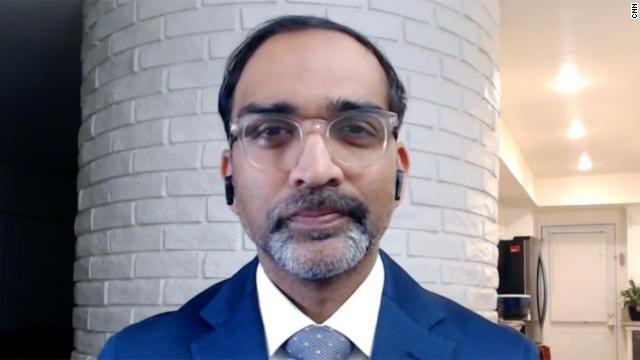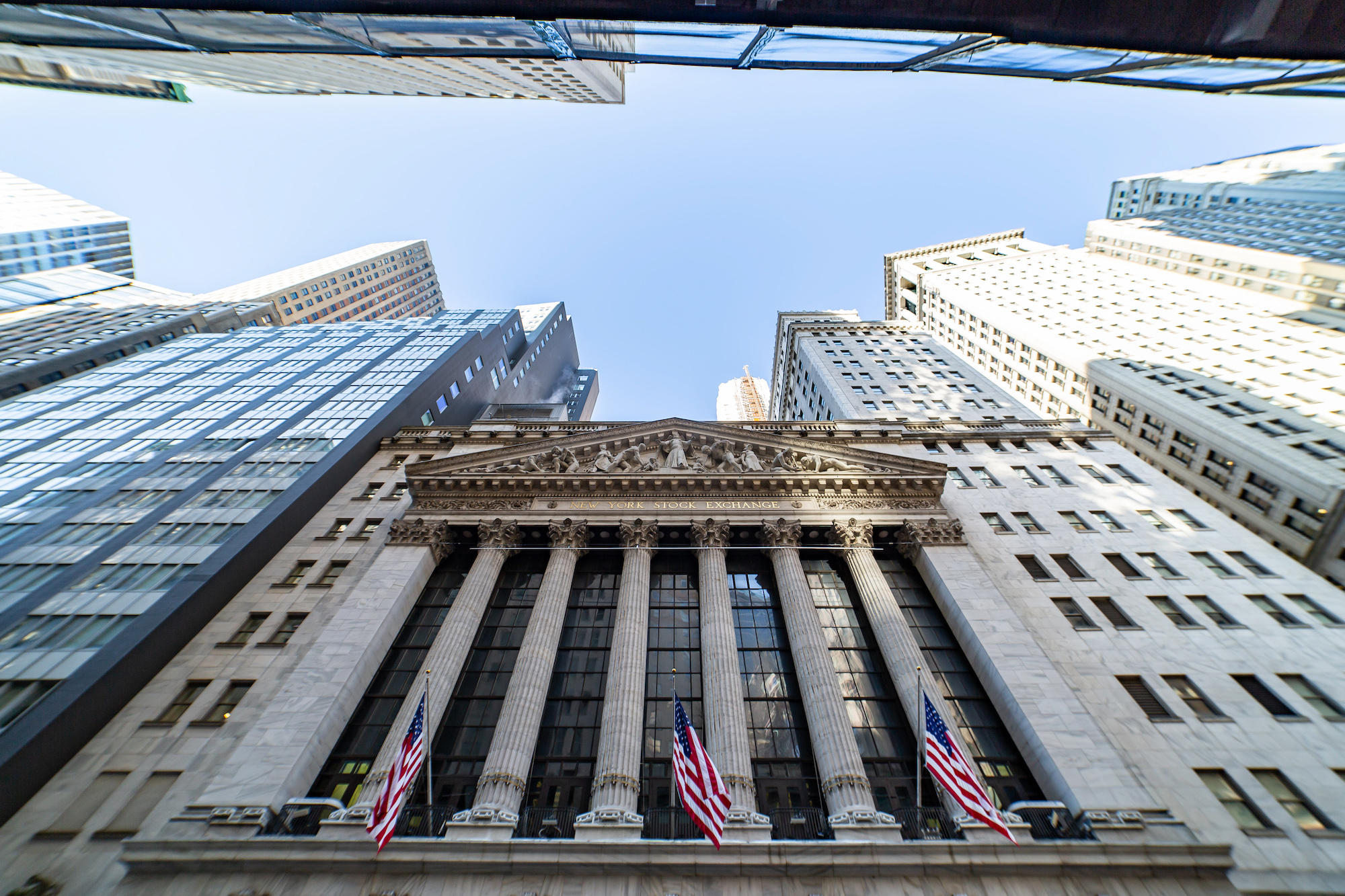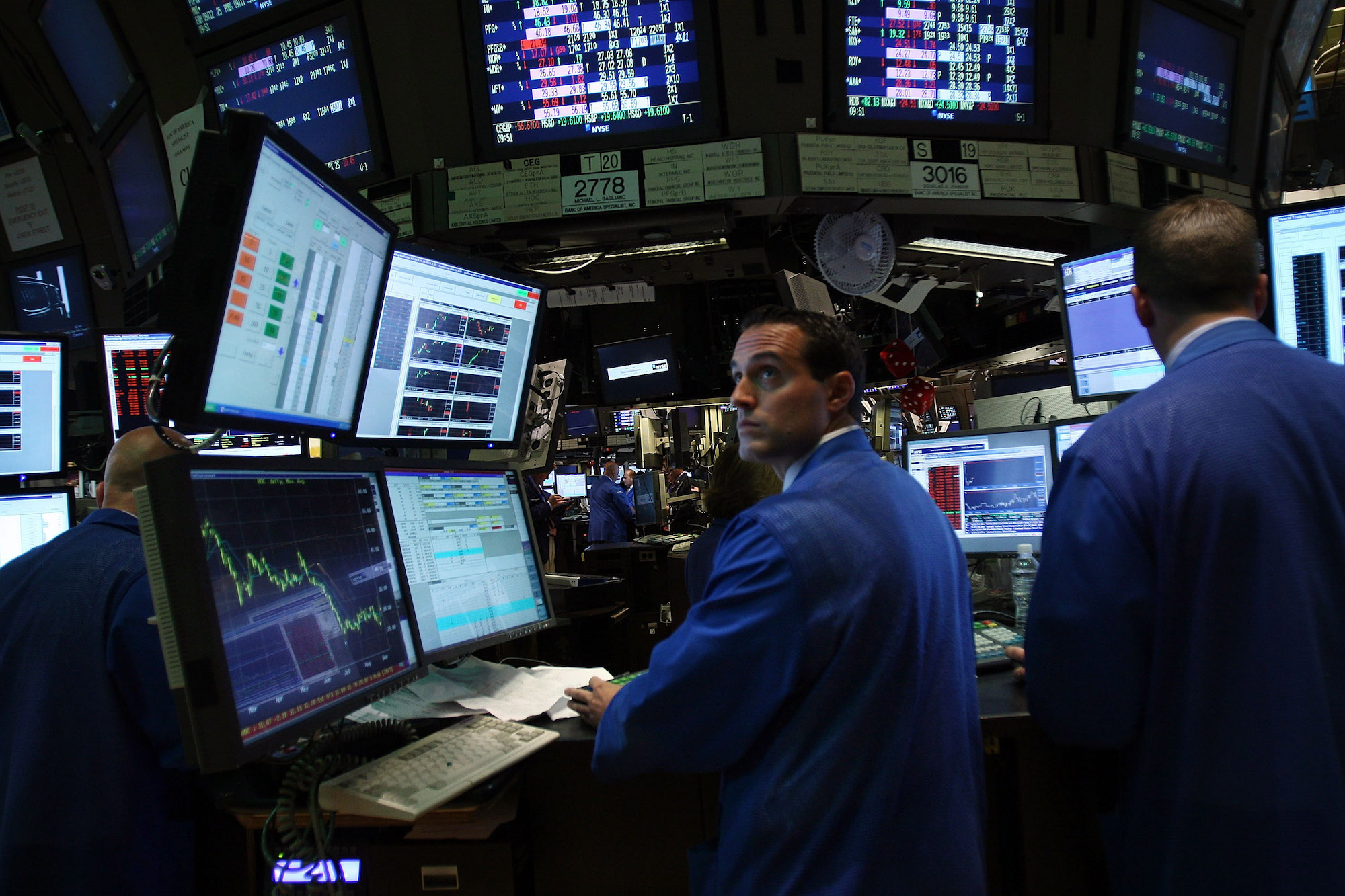Why did SVB get special treatment?
From CNN's Jeanne Sahadi, Michelle Toh, Danielle Wiener-Bronner and Allison Morrow
 An armored truck sits parked in front of the shuttered Silicon Valley Bank headquarters in Santa Clara, California, on March 10. (Justin Sullivan/Getty Images)
An armored truck sits parked in front of the shuttered Silicon Valley Bank headquarters in Santa Clara, California, on March 10. (Justin Sullivan/Getty Images)The banking meltdown over the past week has left us with more questions than answers. The stunning collapse of two American banks and the loss of investor confidence in Credit Suisse led to wild market swings and put Wall Street on edge.
During CNN’s primetime special, “Bank Bust: Inside the Collapse of SVB,” experts weighed in on how to best understand what’s happening in a rapidly developing and confusing environment for financial institutions.
After Silicon Valley Bank failed on Friday, its customers were filled with fear. But by Monday, they could breathe a sigh of relief — the Treasury Department, the Federal Reserve and the Federal Deposit Insurance Corporation had said over the weekend that each customer would be made whole, even beyond the $250,000 insured by the FDIC.
While it was welcome news for account holders, the extraordinary move raised questions for some, who wondered why the FDIC bent its rules for SVB and its customers.
As to why the FDIC made the decision it did? The Federal government didn’t want SVB’s failure to “have a domino effect,” Khalfani-Cox said. “Federal regulators deemed them to be in the category of ‘systemic risk,’ so they granted an exemption.”
Credit Suisse deal doesn't mean the "panic" is over, analyst says
From CNN's Juliana Liu
 Ryan Patel. CNN
Ryan Patel. CNNAsian markets pared some losses on Thursday after Credit Suisse said it would borrow up to 50 billion Swiss Francs ($53.7 billion) from the Swiss National Bank, as it seeks to reassure investors it has the necessary cash to stay afloat.
But Ryan Patel, a senior fellow at the Drucker School of Management at Claremont Graduate University, said the “panic” over the Swiss banking giant isn’t going away anytime soon.
The failure last week of Silicon Valley Bank and Signature, two much smaller regional lenders, shook investor confidence around the world. Some analysts have even compared SVB to Bear Stearns, the first lender to collapse at the start of the 2007-2008 global financial crisis.
However, Patel said regulations imposed on the banking sector after 2008 should be enough to prevent a repeat of the global financial crisis.
Chinese banks advance, even as their overseas peers take a plunge
From CNN's Laura He
 The Shanghai Pudong Development Bank Co. is seen on Tuesday. (Qilai Shen/Bloomberg/Getty Images)
The Shanghai Pudong Development Bank Co. is seen on Tuesday. (Qilai Shen/Bloomberg/Getty Images)Some analysts are calling China a “safe harbor” amid the turmoil.
In Shanghai, the nation’s biggest state-owned lenders all rallied.
Bank of China was up 2.7%. Agricultural Bank of China and ICBC both gained 1.6%. China Construction Bank and Bank of Communications added 1.3% and 0.6%, respectively.
In Hong Kong, Bank of China rose 1%. Agricultural Bank of China was up 0.7%, and Bank of Communications edged 0.2% higher.
Jefferies analysts said Wednesday that China could be a “safe harbor” for investors as the country’s economy is “undoubtedly in a recovery.” The latest economic data from January and February confirmed a rebound is on track, they said.
On the same day, Goldman Sachs raised its forecast for China’s GDP growth to 6% in 2023, up from 5.5% previously. It’s their second upgrade this year.
They cited China’s “rapid reopening” after three years of Covid restrictions and solid economic data from the first two months of this year.
Why are people worrying about Credit Suisse? The bank is "systemically important"
From CNN's Allison Morrow
 A Credit Suisse Group AG office building at night in Bern, Switzerland, on March 15. (Stefan Wermuth/Bloomberg/Getty Images)
A Credit Suisse Group AG office building at night in Bern, Switzerland, on March 15. (Stefan Wermuth/Bloomberg/Getty Images)It’s hard to overstate how big of a deal it would be for Credit Suisse — with its half-a-trillion dollars in assets and more than 50,000 employees around the world — to collapse.
The failure last week of Silicon Valley Bank and Signature, two much smaller regional lenders, shook investor confidence around the world.
Credit Suisse, one the largest lenders in Europe, is “much more globally interconnected, with multiple subsidiaries outside Switzerland, including in the US,” wrote Andrew Kenningham, chief Europe economist at Capital Economics.
Credit Suisse is not just a Swiss problem but a global one.”
Credit Suisse is known as a “global systemically important bank,” (or “G-SIB,” as the cool kids call it).
Once one of those mega-banks is in trouble, people start to wonder what’s going on with the system and speculate about who might be the next to fall.
Even with a financial lifeline from Swiss authorities, there are still plenty of risks and unknowns radiating out from Credit Suisse, keeping investors on edge.
Credit Suisse turmoil indicates the crisis has not been contained, according to Arthur Wilmarth, professor at the George Washington School of Law.
Read more here.
This isn't the first time banking giant Credit Suisse has faced troubles in its 167-year history
From CNN's Hanna Ziady and Michelle Toh
Credit Suisse has been dogged by problems for years. In fact, faced rumors of a potential collapse as recently as late last year.
In October, social media chatter that the Swiss bank was on the brink of going bust sent shares on a wild ride.
It also appeared to cost the firm dearly: Customers withdrew 111 billion Swiss francs ($121 billion) in the final three months of 2022 amid the speculation.
Credit Suisse has since embarked on a massive turnaround plan that will see it slash 9,000 full-time jobs by the end of 2025. The firm will also spin off its investment bank and focus more on wealth management.
But last month, the Zurich-based lender reported its biggest annual loss since the financial crisis in 2008, highlighting the scale of the challenge it continues to face.
It lost 7.3 billion Swiss francs ($7.9 billion) in 2022, compared to a loss of 8.2 billion Swiss francs ($8.9 billion) in 2008.
The dismal results followed a series of missteps and compliance failures that have already cost the bank dearly.
For example, the collapse of US hedge fund Archegos Capital Management, a client of Credit Suisse, in 2021 cost the bank $5.5 billion. An independent external investigation later found "a failure to effectively manage risk."
Last year, the bank's chairman also resigned following an investigation commissioned by the board that reportedly looked at claims that he broke Covid-19 rules. The inquiry was said to focus on conduct including travel and his personal use of corporate aircraft.
The bank's reputation has also been marred by a spying scandal in recent years, which ultimately led to the resignation of its former CEO and COO.
New deal: Credit Suisse said Wednesday it would borrow up to 50 billion Swiss Francs ($53.7 billion) from the Swiss National Bank, as it seeks to reassure investors it has the necessary cash to stay afloat. Investors sent shares in the country’s second biggest lender crashing by as much as 30% Wednesday.
US futures are pointing up after stocks tumbled Wednesday
From CNN's Michelle Toh
 The facade of the New York Stock Exchange Building is seen on February 13, 2020. (Nicolas Economou/NurPhoto/Getty Images/FILE)
The facade of the New York Stock Exchange Building is seen on February 13, 2020. (Nicolas Economou/NurPhoto/Getty Images/FILE)US stock futures ticked up slightly early Thursday morning, suggesting signs of a rebound when markets open for regular trade.
Dow futures rose 0.3%. S&P 500 futures pointed up 0.4%, while Nasdaq futures gained 0.5%.
The moves followed a tense day on Wall Street, sending US stocks mostly down as investors fretted over the outlook for global banking.
The Dow closed down nearly 0.9%, while the S&P 500 fell about 0.7%. The Nasdaq Composite, meanwhile, moved up 0.05%.
"Hopes of stability" as Asian markets react to Credit Suisse deal
From CNN's Juliana Liu
 CNN International correspondent Marc Stewart. CNN
CNN International correspondent Marc Stewart. CNNReporting from Tokyo, CNN Correspondent Marc Stewart says there are hopes that Credit Suisse’s announcement that it would accept funding from the Swiss central bank could return markets to stability.
Credit Suisse said Wednesday it would borrow up to 50 billion Swiss Francs ($53.7 billion) from the Swiss National Bank, as it seeks to reassure investors it has the necessary cash to stay afloat.
Even as most Asian shares remain in the red on Thursday, the news seems to have put a floor under the most severe losses.
So what is causing investors to be so jittery?
"If we look into the United States, banks there are dealing with very high interest rates. High interest rates, at least in the US, make credit card statements more expensive, make auto lending more expensive. It also makes it more expensive for the way that banks do business, and that creates some concern."
Are banks in a similar position to the situation in 2008?
From CNN's Jeanne Sahadi, Michelle Toh, Danielle Wiener-Bronner and Allison Morrow
 Traders work on the floor of the New York Stock Exchange on September 15, 2008. (Spencer Platt/Getty Images/FILE)
Traders work on the floor of the New York Stock Exchange on September 15, 2008. (Spencer Platt/Getty Images/FILE)The banking meltdown over the past week has left us with more questions than answers. The stunning collapse of two American banks and the loss of investor confidence in Credit Suisse led to wild market swings and put Wall Street on edge.
During CNN’s primetime special, “Bank Bust: Inside the Collapse of SVB,” experts weighed in on how to best understand what’s happening in a rapidly developing and confusing environment for financial institutions.
CNN’s chief business correspondent Christine Romans says this is not a repeat of the 2008 global financial crisis, because banks aren’t carrying toxic assets.
However, Romans noted that smaller banks like SVB don’t face quite the same regulatory scrutiny as their larger peers.
Some context: Those regulations passed in the wake of the Great Recession laid out stricter rules for the banking industry. But small and mid-sized banks — those with assets below $250 billion, like SVB — were exempted from some of the rigorous capital requirements applied to larger institutions, and from the obligation to undergo tests of their ability to withstand financial stress by the Federal Reserve each year.
Is my money safe?
From CNN's Jeanne Sahadi, Michelle Toh, Danielle Wiener-Bronner and Allison Morrow
The banking meltdown over the past week has left us with more questions than answers. The stunning collapse of two American banks and the loss of investor confidence in Credit Suisse led to wild market swings and put Wall Street on edge.
During CNN’s primetime special, “Bank Bust: Inside the Collapse of SVB,” experts weighed in on how to best understand what’s happening in a rapidly developing and confusing environment for financial institutions.
Former Treasury Secretary Larry Summers told CNN that despite scary headlines, now is not the time for consumers to panic.
“I don’t think this is a time for panic or alarm,” Summers said. “This is not 2008, where people needed to be worried about where they could get their money…It absolutely is not that.”
“Americans’ money is safe,” he said.
.png)
 1 year ago
9
1 year ago
9









 English (US) ·
English (US) ·